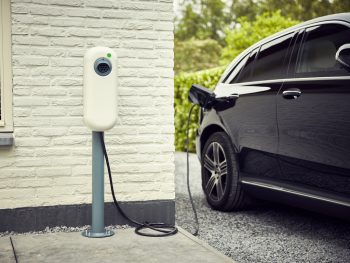Choosing right charging tariff could save EV drivers over £1,000 a year
Fleet drivers cost save more than £1,000 a year on charging costs by hunting down the best electricity tariff.

Many households will now have larger electricity utility bills to pay, but EV drivers who charge at home will be particularly hit
So says Rightcharge as it warns that energy prices are on the rise as a result of changes to the Ofgem price cap.
Energy prices in the UK increased on 1 April 2021 after Ofgem reverted its price cap to pre-pandemic levels, principally as a result of changes in wholesale energy pricing. This means that many households will now have larger electricity utility bills to pay, according to vehicle home charger and energy comparison site Rightcharge.co.uk, but will particularly hit those with EV drivers who charge at home.
As an example, a fleet driver covering 20,000 miles annually will expect to pay £2,599 a year on a standard variable tariff from one of the big six energy suppliers from April 2021. This includes £1,454 for charging their car.
But seeking a more generously priced EV-friendly energy tariff will not only enable drivers to benefit from lower car charging rates at home, but the tariffs will also reduce their home energy costs at the same time.
Rightcharge says users who switch to a lower-cost alternative EV energy tariff could pay only £1,349 a year – with just £459 of that amount on vehicle charging. That’s a huge saving of £995 on charging a vehicle at home, with another £255 saved on household energy bills. So that’s a total saving of £1,250 a year.
Charlie Cook, founder of Rightcharge, emphasised: “Drivers really can’t afford to miss out on the savings available if they change to the right deal.”
He added: “We believe many EV drivers just don’t realise that while costs have gone up they can still save. Our price comparison website offers them the choices to make the best decisions.”













Victor Harman26. Apr, 2021
Saving EV charging costs. 20,000 miles a year costing £1,454 @ 4 miles per kWh = 5,000kWh, making the cost around 29p per kWh average.
It must include a fair bit of on-road fast charging. That should not really be necessary, as on a 5-day week 20,000 miles = 80 miles a day.
Domestic charging, at worst at say 18p/kWh, should look after that. It would cost £900 a year.
With off-peak Economy 7 or Smart EV charging tariffs as low as 5p/kWh for 4-5 hrs a night at 7kW should give enough for 80 miles a day.
So charging costs could be as little as 5,000kWh at 5p/kWh = £250, not £459 as stated.
Hope I got these figures right! Obviously could be higher cost if daily mileage was above say 4 hours at 7kW = 28 x 4 miles/kWh = 112 miles.
Best regards, Victor Harman. Norwich. Hope you find that interesting Natalie!